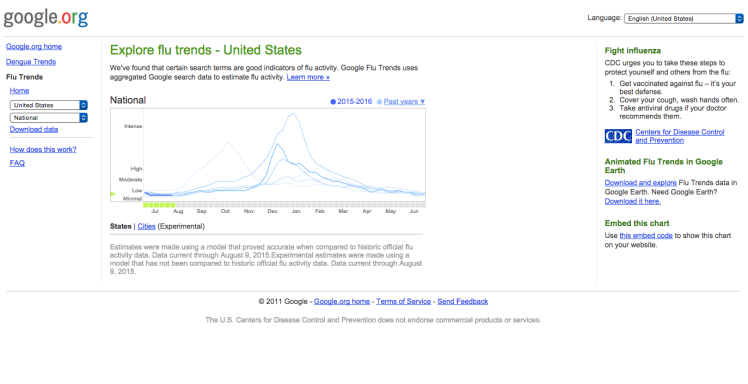Google has turned off its website for showing search activity for the flu and dengue fever, as a way to suggest the presence of such diseases in certain places around the world. Google said today that it will be offering its data to organizations such as the Columbia University’s Mailman School of Public Health, Boston Children’s Hospital, and the Centers for Disease Control and Prevention’s influenza division.
But Google isn’t completely taking away public access to what it knows about flu and dengue. The company is offering historical data to the public here.
“Flu continues to affect millions of people every year, and while it’s still early days for nowcasting and similar tools for understanding the spread of diseases like flu and dengue fever — we’re excited to see what comes next,” the Google Flu Trends team wrote today.
Google Flu Trends, which Googlers started working on in 2008, were an early example of what companies could do with a variety of large, messy datasets — also known as big data. Messages on social networks like Twitter can also be used for a wide variety of purposes, and indeed Twitter last year decided to buy Gnip, a company that sold access to the Twitter firehose of tweets.
It’s unclear if Google thinks this search data could represent a potential revenue stream. But the form that researchers can fill out to gain access to it does specifically ask if their work is “a commercial or non-commercial use.”
VentureBeat's mission is to be a digital town square for technical decision-makers to gain knowledge about transformative enterprise technology and transact. Learn More

